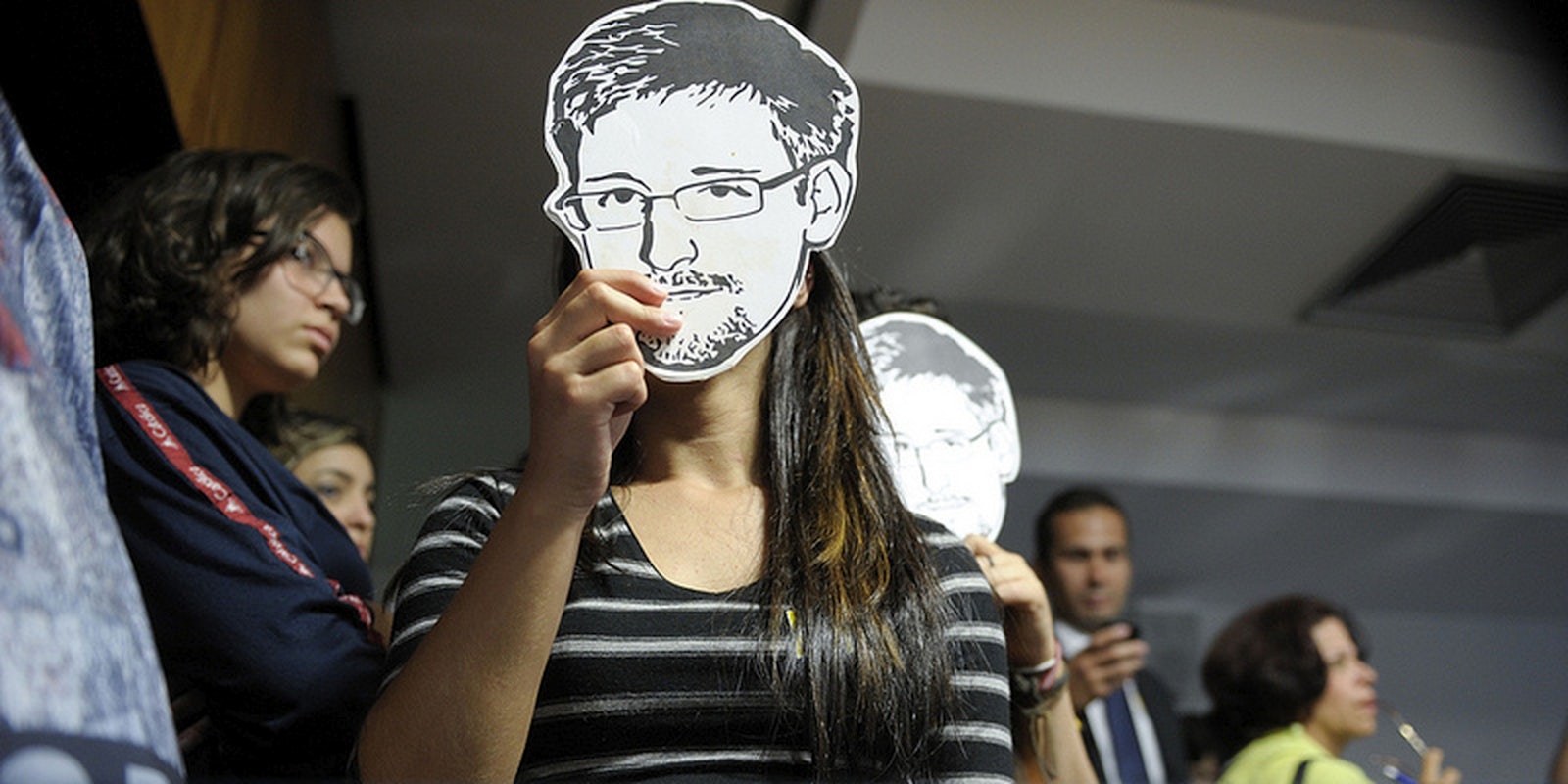Hot on the heels of a Washington Post interview in which he declared “mission accomplished” on his role as an NSA whistleblower, Edward Snowden recorded a Christmas video message to the people of the U.K.
On the afternoon of Christmas Day, it’s traditional for British families to tune into the Queen’s Speech, a pre-recorded message where the reigning monarch discusses the year’s major news stories and milestones in the life of the royal family. Since 1993, Britain’s Channel 4 has aired an “alternative Christmas message” at the same time, to give the less royalist citizens something to watch instead. Past alternative speechmakers have included Mahmoud Ahmadinejad, Reverend Jesse Jackson, and the Simpsons, and this year’s is Edward Snowden.
Snowden’s message focuses on censorship and government surveillance, and references George Orwell’s 1984. Festive!
“Great Britain’s George Orwell warned us of the danger of this kind of information,” says Snowden, in an extract from his speech. “The types of collection in the book—microphones and video cameras, TVs that watch us are nothing compared to what we have available today. We have sensors in our pockets that track us everywhere we go. Think about what this means for the privacy of the average person.”
“A child born today will grow up with no conception of privacy at all. They’ll never know what it means to have a private moment to themselves an unrecorded, unanalysed thought. And that’s a problem because privacy matters, privacy is what allows us to determine who we are and who we want to be.”
Here’s the full speech:
Hi, and Merry Christmas. I’m honored to have the chance to speak with you and your family this year.
Recently, we learned that our governments, working in concert, have created a system of worldwide mass surveillance, watching everything we do.
Great Britain’s George Orwell warned us of the danger of this kind of information. The types of collection in the book — microphones and video cameras, TVs that watch us — are nothing compared to what we have available today. We have sensors in our pockets that track us everywhere we go.
Think about what this means for the privacy of the average person. A child born today will grow up with no conception of privacy at all. They’ll never know what it means to have a private moment to themselves — an unrecorded, unanalyzed thought. And that’s a problem, because privacy matters. Privacy is what allows us to determine who we are and who we want to be.
The conversation occurring today will determine the amount of trust we can place both in the technology that surrounds us and the government that regulates it. Together, we can find a better balance. End mass surveillance. And remind the government that if it really wants to know how we feel, asking is always cheaper than spying.
For everyone out there listening, thank you, and Merry Christmas.
This is Snowden’s first televised interview since arriving in Moscow, effectively broadcasting from exile. It’s an expected choice for Snowden, who appears to be making an effort to become more of a public figure, rather than being passively reported upon while he attempts to find political asylum outside Russia.
Channel 4’s alternative Christmas message is often intended to be provocative, in direct opposition to the traditionally banal Queen’s Speech, which is mostly known for lulling people to sleep after a heavy Christmas dinner. Justifying Channel 4’s choice of speaker, Head of News and Current Affairs Dorothy Byrne said, “Edward Snowden’s decision to reveal the extent of surveillance programmes was one of the most significant news events of the year. The information which he has placed in the public domain raises serious questions for democratic society.”
Photo via agenciasenado/Flickr


